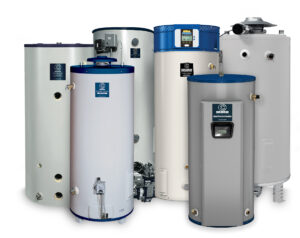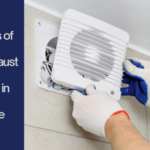Introduction
Water heater have become indispensable appliances in our homes, providing us with the luxury of hot water for various purposes. Whether it’s a refreshing morning shower or washing dishes after a sumptuous meal, a properly functioning water heater ensures our daily routines run smoothly. It is important to note that a water heater, like any other mechanical system, may encounter problems over time, resulting in disruptions and discomfort. In this article, we delve into the world of water heater repair, exploring common problems, troubleshooting techniques, and the importance of professional intervention.
Understanding Common Water Heater Problems
Insufficient or No Hot Water: One of the most prevalent issues is the lack of hot water or an inadequate supply. If the water heater element is faulty, the thermostat is malfunctioning, the dip tube is broken, or sediment has built up in the tank, the problem might occur.
Strange Noises: There may be sediment accumulation in your water heater if you hear popping, cracking, or rumbling sounds. Over time, mineral deposits settle at the bottom of the tank, causing inefficient heating and potential damage to the unit.
Leaks and Drips: Leakage is a serious concern that demands immediate attention. The presence of a faulty pressure relief valve, corrosion in the tank, or loose connections can all contribute to leaks. Ignoring leaks can lead to extensive water damage and a decrease in the water heater’s lifespan.
Discolored or Smelly Water: If the hot water appears rusty or emits a foul odor, it could be a sign of corrosion or bacterial growth within the tank. These issues require prompt action to ensure the water remains safe and pleasant to use.
Troubleshooting Techniques for Water Heater Repair
Check the Power Supply: If your water heater is not producing hot water, ensure that it has a functioning power supply. Make sure that no switches have tripped in the circuit breaker or fuse box. There may be a solution to the problem by resetting the computer.

Inspect the Thermostat: Make sure the thermostat settings are appropriate and haven’t been accidentally adjusted. Sometimes, a simple adjustment can restore the desired temperature.
Water heaters can be adversely affected by sediment buildup if they are not flushed regularly. Flushing the tank regularly helps remove these deposits and improves heating efficiency. It is recommended that you follow the manufacturer’s instructions or seek professional assistance when performing this procedure.
Replace Faulty Components: Faulty heating elements, malfunctioning thermostats, or damaged dip tubes may require replacement. These parts are relatively affordable and can often be replaced without the need for extensive repairs.
The Importance of Professional Water Heater Repair
Even though some minor water heater issues can be resolved by DIY troubleshooting, it is important to recognize the limits of your knowledge and skills. Certain problems, such as major leaks, gas-related issues, or complex electrical malfunctions, require professional expertise. Here’s why professional intervention is essential:
Safety First: Water heaters involve electrical connections, gas lines, electric burner and high-pressure systems. Improper handling can result in severe accidents, endangering your safety and property. A professional is trained to navigate these risks and ensure a safe repair procedure.
Accurate Diagnosis: Certified technicians possess the knowledge and experience to accurately diagnose water heater problems. By identifying underlying issues that may go unnoticed to the untrained eye, they can prevent further damage from occurring.
Long-Term Solutions: DIY repairs may provide temporary relief, but professional repairs offer long-term solutions. Professionals not only fix the immediate problem but also address any underlying issues to prevent recurring breakdowns and extend the lifespan of your water heater.
The common issues that affect water heaters and discuss practical steps to address them, ensuring the uninterrupted comfort and convenience they bring to our lives.
Understanding Common Water Heater Issues:
a) Insufficient Hot Water: One of the most common complaints is a lack of adequate hot water. This may be caused by a faulty thermostat, a damaged heating element, sediment buildup in the tank, or a malfunctioning dip tube. Identifying the root cause is crucial to determining the appropriate repair steps.
b) Water Leakage: Leaks around the water heater can be attributed to a variety of factors, such as loose connections, faulty valves, a cracked tank, or excessive pressure. To reduce energy consumption and prevent property damage, it is essential to detect and address leaks promptly.
c) Strange Noises: Unusual noises, such as rumbling, popping, or hissing sounds, can be indicative of sediment buildup, a malfunctioning heating element, or excessive pressure within the tank. It is possible to cause further damage and potentially dangerous situations if you ignore these sounds. You may also visit answertenant for more information.
Troubleshooting and Repair Techniques:
a) Check the Power Supply: Before delving into more intricate repairs, ensure that the water heater is receiving adequate power. Make sure there are no electrical problems by checking the circuit breaker or fuse box.
b) Adjust the Thermostat: If the water is not reaching the desired temperature, the thermostat may need adjustment. Consult the manufacturer’s instructions to locate the thermostat and make the necessary changes.
c) Flushing the Tank: Sediment buildup can diminish the water heater’s efficiency. Regularly flushing the tank can help remove sediment and improve its performance. For safe and effective flushing, follow the manufacturer’s instructions or consult a professional.
d) Inspect and Replace Faulty Components: Faulty heating elements, malfunctioning thermostats, or damaged valves may require replacement. When handling electrical components, it is imperative to turn off the power supply and follow the appropriate safety precautions.
e) Pressure Relief Valve Testing: A faulty pressure relief valve can result in excessive pressure buildup, leading to leaks or other potential hazards. Regularly test the valve’s functionality and replace it if necessary.
Seeking Professional Assistance:
While some water heater repairs can be handled by homeowners, it is crucial to recognize when professional help is required. Complex issues, gas-powered water heaters, and situations involving gas leaks should always be handled by licensed professionals. It can be dangerous and void a warranty to attempt complex repairs without the necessary expertise.
In Conclusion:
In conclusion, well-functioning water heater is a vital part of a comfortable and convenient household. By understanding common issues and employing appropriate repair techniques, homeowners can restore their water heaters’ optimal performance. Regular maintenance, prompt troubleshooting, and seeking professional assistance when needed are key to ensuring a steady flow of warmth in our daily lives. Remember, a little knowledge and timely action can go a long way in keeping your water heater running efficiently and reliably.












